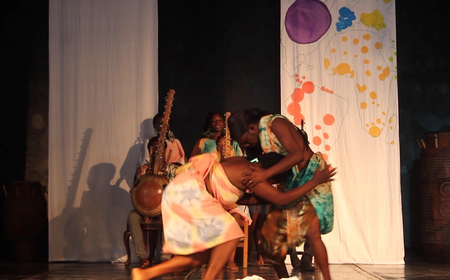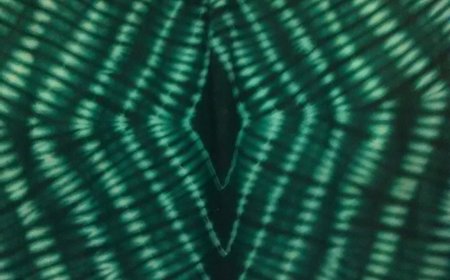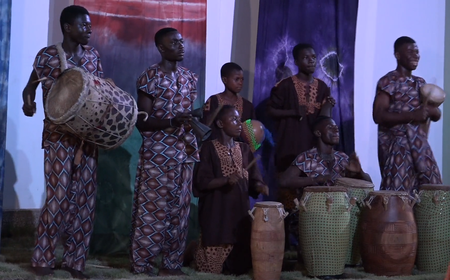Migration and arts intervention story in South Africa
On 2nd September 2023, a migration and art pilot intervention performance took place in the city of Cape Town, at an alternative art space Chimurenga. The performance event is a follow up of nine days rehearsal that we, researchers at the University of Cape Town, undertook at a local civil society organisation (CSO), Africa Unite.
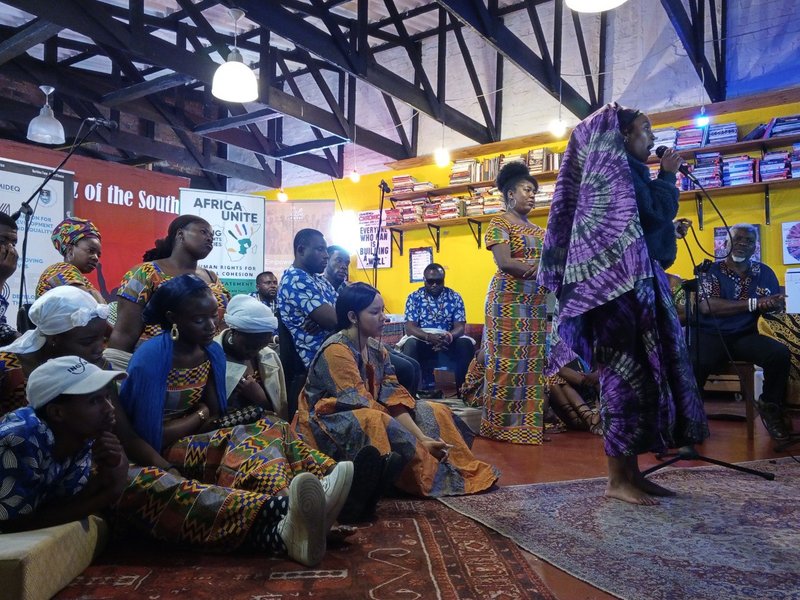
The rehearsal, or more broadly the intervention, was designed to translate our research findings, on the Ethiopia-South Africa migration corridor, into an art piece. In other words, the objective of this intervention is to use art, specifically musical drama, as a medium of communication tailored towards sharing our research findings to the wider audience. In addition, the intervention aimed at informing art practice with scientific knowledge so that the outcome produced in the process integrates art and science. Accordingly, the event was organised to present the outcome of the intervention to selected audience from the media, academia, CSOs, migrants and others in the local community.
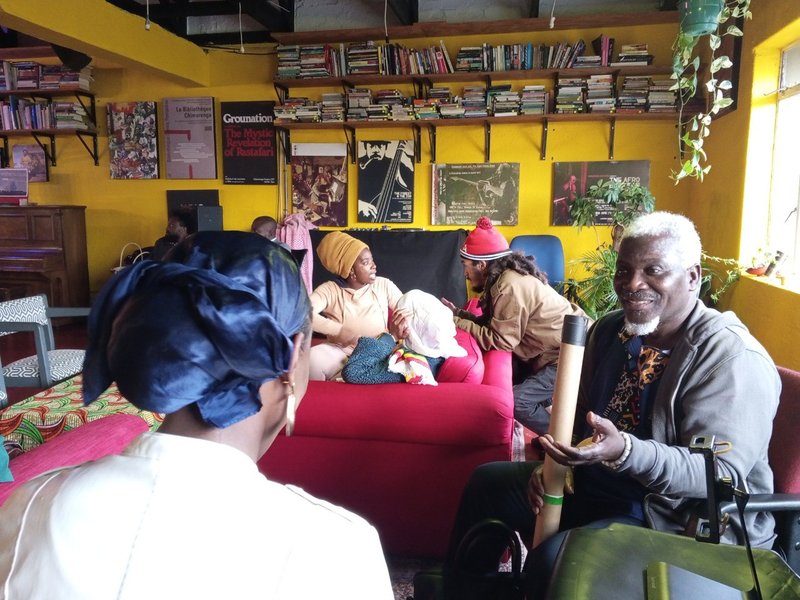
In order to translate the research findings into an art piece, we partnered with Dr Gameli Tordzro, a MIDEQ researcher from the University of Glasgow, along with local institutions and individuals that are engaged on migration related activities. The latter included Africa Unite and Kwesu; a group of local musicians called Soundz of the South; and a group of immigrants who play traditional musical instruments from West African countries.
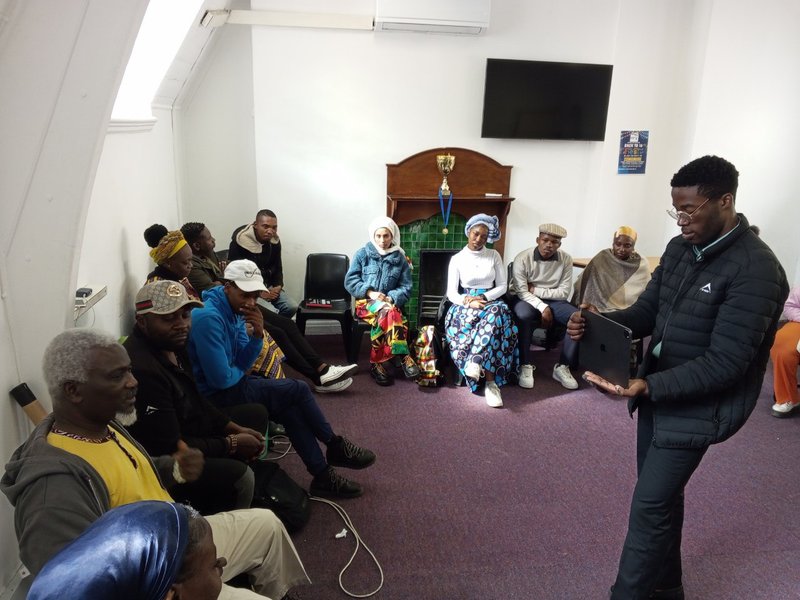
The performers came from diverse backgrounds and cultures. They included young artists, musicians, peer educators, designers, innovators, and entrepreneurs. They are selected in such a way that their experiences, skills and migration backgrounds fit the themes of the intervention, primarily social cohesion. The performers represented South Africa and a number of other African countries including Benin, Cameroon, Democratic Republic of Congo, Ethiopia, Ghana and Zimbabwe.
Food, language, costume, and tunes (melodies) from diverse African cultures were used as instruments to create an art piece that enhanced social cohesion. The rehearsal process encouraged the performers to come out of the confines of their comfort zones and try a different experience. Accordingly, the experience of speaking and singing in other languages, tasting different dishes, and putting on outfits that display different cultures boosted intercultural relations and enhanced social cohesion among the performers.
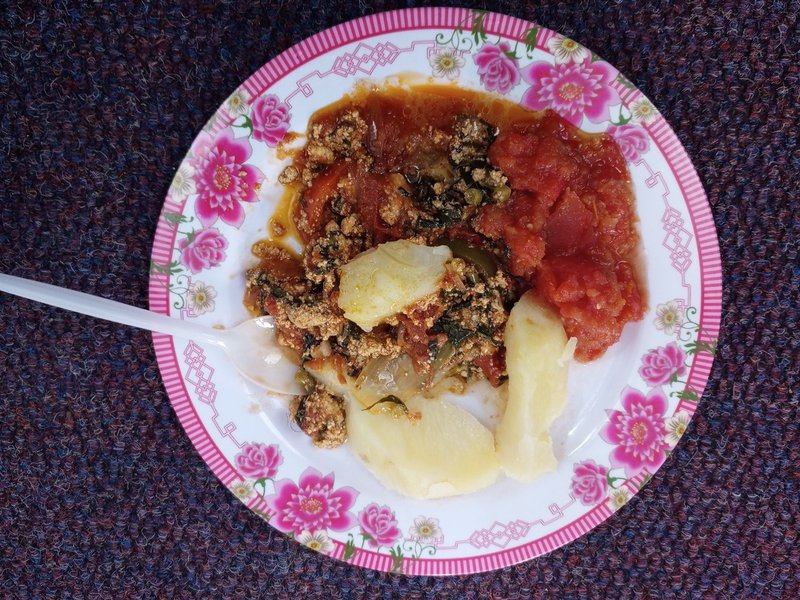
In addition to these instruments, soft values such as gifting, playfulness, passion, resilience, resonance, and transcendence were employed as tools to enhance creativity and produce the musical drama that integrates science and art.
We applied an open methodology to create a space to enhance creativity. Although we used our research findings as input in the creative process, we neither impose our thoughts nor provide a narrow framework for performers to adhere to. This is primarily because we thought of the process as co-creation:
Feedback from the audience, reflections from the performers, and our observations indicated that the pilot intervention:
- Enhanced the capacity of the partnering CSOs;
- Contested dominant narrative around migration;
- Created strong social cohesion among the team and personally transformed the participants.
Also, from the vantage point of research methodology, we learned that the intervention could be used as an innovative approach to co-create migration related knowledge while simultaneously communicating the knowledge produced in academia.
In terms of contesting dominant narratives around immigrants in South Africa, the creative process improved the locals’ perception about migration and immigrants. For example, the local participants mentioned that they never had the chance to be in such a space and interact with migrants. Their interaction with migrants changed their perceptions about immigrants through mutual understanding. The intervention also improved the capacity of our partnering organisations, Africa Unite and Kwesu, as well as UCT’s community outreach programme.
In terms of methodology and impact, we believe that if the intervention is replicated in our research sites, the actual space where migrants and locals stay and interact each other, it can have more impact through improving mutual understanding and building better relationships. We witnessed this in the strong relationships, better understanding, and emotional warmth the performers, both local and migrants, forged during the rehearsal.
Photos provided by University of Cape Town

